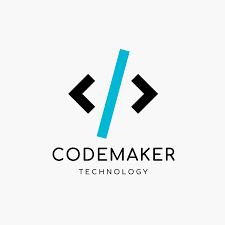CodeMaker AI has achieved a landmark breakthrough by autonomously recreating a 90,000-line software library with a 91% similarity to the original codebase. This achievement represents a significant shift in software development, showcasing AI’s potential to reduce manual coding efforts and accelerate development timelines drastically. CodeMaker AI processes over 3,200 files and reproduces the code in under two hours, leveraging advanced machine learning techniques. This development opens a new frontier in automating and augmenting complex tasks within software engineering.
Revolutionizing Software Development with CodeMaker AI
At the core of CodeMaker AI’s experiment was fine-tuning a machine learning model on a specific codebase, enabling the AI to generate code autonomously. This process involved taking a pre-trained model and further training it on a dataset to adapt to a particular task. The AI was fine-tuned on a full production codebase, aligning with specific coding styles and structures. The recreated code, published on GitHub, highlights AI’s efficiency, with estimates suggesting that manually recreating the code would have taken around 25 years of developer time.
Efficiency and Cost-Effectiveness
The fine-tuning process involved training the AI model on 129 million tokens from the codebase, taking 11 hours and 44 minutes for $1,949.75. The model then recreated erased code in the src/main/java directory using CodeMaker AI’s batch code generation feature in just 1 hour and 42 minutes. The AI-generated code was assessed for accuracy using error and similarity rates, showing that the fine-tuned model significantly outperformed the foundation model. This highlights the importance of task-specific fine-tuning for AI models in software generation.
Impact on Business Operations
The implications of CodeMaker AI’s achievement extend far beyond simple code generation. As AI continues to evolve, it automates various aspects of software development, such as testing, documentation, and debugging. This leads to:
- Accelerated Development Cycles: By automating code generation, developers can focus on higher-level tasks such as system architecture, design, and problem-solving, leading to faster product development and shorter time-to-market for software solutions.
- Cost Efficiency: AI generated 90,000 lines of code in just over an hour at a fraction of the cost and time required for human developers. This financial and time-saving capability is a game-changer for companies looking to reduce development costs while maintaining high-quality code.
- Shaping the Role of Developers: As AI tools become more sophisticated, the role of software developers may shift. Developers might oversee AI-generated code, fine-tune models for specific tasks, and address high-level design challenges, leading to a collaborative effort between human creativity and machine efficiency.
Challenges and Future Directions
Despite the success, challenges such as reproducibility, ambiguity in code, and knowledge drift remain. Fine-tuning is essential for improving the accuracy and similarity of AI-generated code, but perfect replication may still be necessary. The inherent ambiguity in coding can make it tough for AI models to determine the “correct” version of the code without additional context. Continuous retraining is also necessary to keep AI models effective as codebases evolve.
Conclusion
CodeMaker AI’s ability to recreate 90,000 lines of code with 91% similarity marks an important milestone in using AI for software development. By fine-tuning AI models on specific codebases, CodeMaker AI has demonstrated that AI can significantly accelerate development cycles, reduce costs, and improve efficiency. However, challenges such as reproducibility, ambiguity in code, and knowledge drift remain, and further research is needed to address these issues. The future of software development could see a collaborative effort between human creativity and machine efficiency, with AI playing a pivotal role in transforming the industry.









